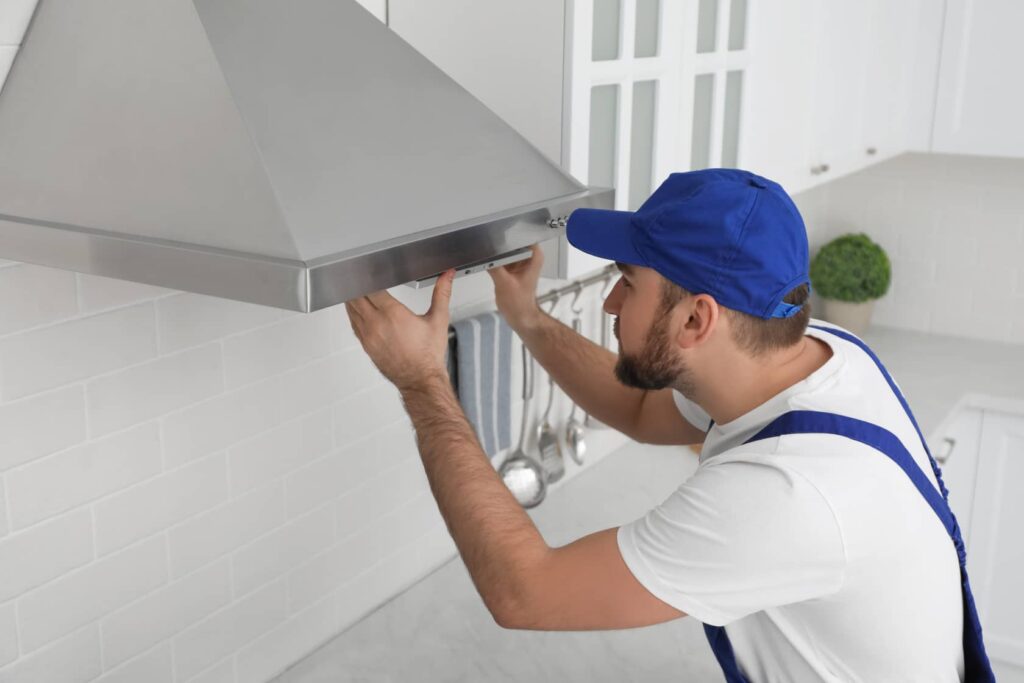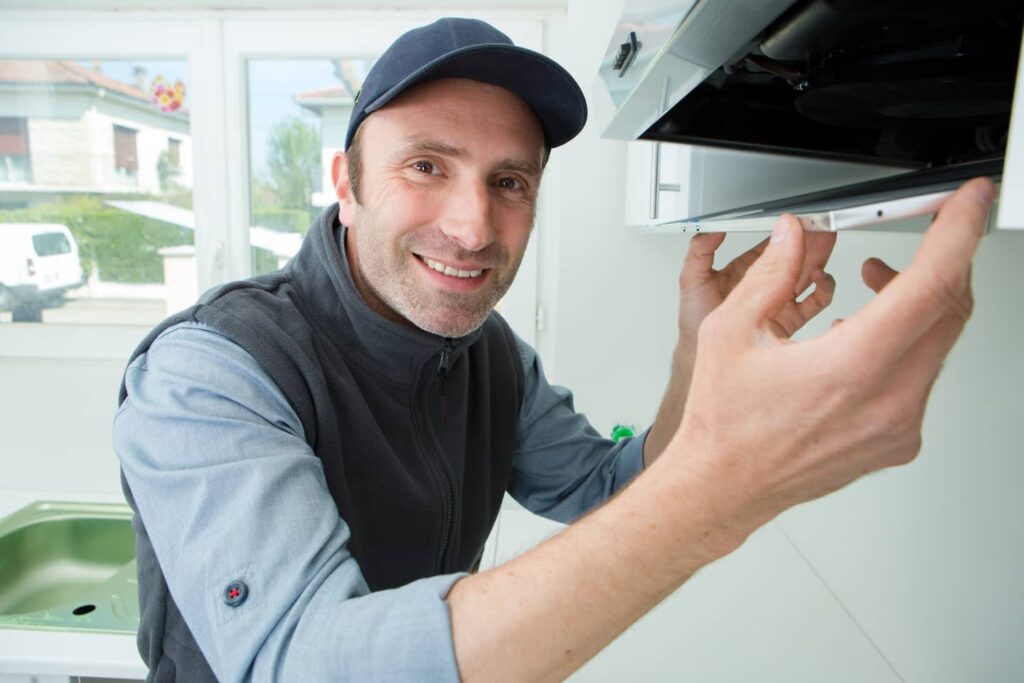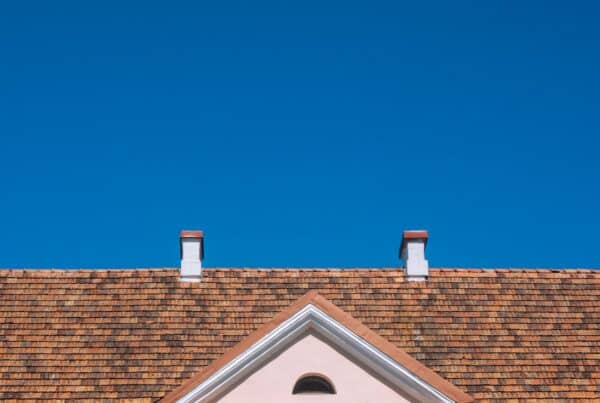
Selecting the right range hood for your kitchen isn’t just a matter of style—it’s about functionality and maintaining a fresh environment in your home’s culinary center. If you’re considering ductless range hoods, you may be pondering their mechanics and benefits. How does a ductless range hood work? Are there real benefits to this style compared to other options?
Ductless range hoods, also known as recirculating range hoods, offer a streamlined and adaptable approach to kitchen ventilation, especially when traditional ducted systems are impractical. This article dives into the workings of ductless range hoods, their advantages and limitations, and the considerations to keep in mind before making your decision.
Range Hood Basics
A range hood does more than accessorize; it’s a key device ensuring a pleasant, safe cooking space. It captures and eliminates airborne grease, smoke, odors, and other cooking pollutants. This workhorse of kitchen ventilation comes in two primary types, each with its unique method of managing kitchen air.
Ducted Range Hoods:
- Venting Method: These systems channel air outside your home through a series of ducts.
- Location Considerations: Ideal for kitchens that can accommodate venting infrastructure.
- Air Removal: Highly effective at expelling kitchen pollutants completely out of the home environment.
Ductless Range Hoods:
- Venting Method: These units filter and recirculate air back into the kitchen.
- Location Considerations: Suited for spaces where external venting isn’t feasible, such as apartments or historical renovations.
- Air Removal: While not expelling the air, they utilize advanced filtration to purify it before recirculation.
Decision Factors
In choosing between ducted and ductless, consider installation possibilities, the level of ventilation needed, and the frequency of kitchen use. While ducted hoods excel in air extraction efficiency, ductless hoods win in adaptability and ease of installation. Maintenance for ductless units is centered around filter care, whereas ducted systems often require less frequent attention.
Energy and Economics
Energy considerations also play a part; ductless hoods can be more energy-conscious by keeping conditioned air indoors. On the financial side, the initial setup for ductless hoods may be less costly. However, factor in the ongoing expense of filter replacements when budgeting for long-term use.
So, How Does a Ductless Range Hood Work?
A ductless range hood operates by drawing in air laden with cooking by-products such as smoke, grease, and odors. Once the unit pulls in the air, it first moves through a primary grease filter, usually made of aluminum or stainless steel, to capture larger particles. Following this initial filtration, the air then moves through an activated charcoal filter. This specialized filter is designed to absorb the finer particles and odors, effectively purifying the air. Finally, the clean air is recirculated back into the kitchen, maintaining a fresher environment without the need for external venting.
The work of a ductless range hood is complemented by advancements in technology, which include improved filter media for enhanced odor absorption and variable fan speeds that allow for greater control over airflow. These features ensure that the range hood can efficiently manage air quality, irrespective of the intensity of your cooking. It’s an ideal system for spaces where installing ductwork isn’t possible, offering a balance of convenience and air purification performance.

The Pros, Cons, and Cost Considerations of Ductless Range Hoods
When it comes to the practicalities of installing a range hood, ductless models come with their set of benefits and drawbacks, as well as particular cost considerations that homeowners should be aware of.
Pros of Ductless Range Hoods
Flexibility in Installation: Ductless range hoods are ideal for kitchen spaces where ducting to the outside isn’t possible. This includes apartments, condos, and historical buildings where structural modifications are limited. Their adaptability is a significant advantage, allowing for installation in a variety of locations without major renovation.
Improved Indoor Air Quality: By using advanced filters to capture and neutralize cooking by-products, ductless hoods help maintain a cleaner, odor-free kitchen environment. The recirculation of air ensures that the kitchen remains a comfortable space to cook and entertain in.
Energy Conservation: Since ductless hoods recirculate air, they can help conserve heating and cooling energy by keeping the indoor air temperature more stable. This can be especially beneficial in extreme climates where the cost of heating or air conditioning is a concern.
Cons of Ductless Range Hoods
Limited Ventilation Power: While ductless hoods are effective at filtering, they are not as powerful in overall ventilation when compared to ducted systems that exhaust air outside. This limitation might be felt in high-volume cooking situations where smoke and odors are more intense.
Dependence on Filters: The performance of ductless range hoods hinges on their filters. With no external vent, indoor air quality relies on the hood’s cleaning ability, which can wane without regular filter maintenance.
Cost Considerations
Initial Investment: Generally, ductless range hoods are less expensive to install than ducted systems since they do not require additional ductwork. This can make them a more budget-friendly option upfront.
Ongoing Costs: Factor the cost of replacing filters into your long-term budget. Although the initial investment might be lower, the recurring expense of buying new charcoal filters, which require more frequent replacement than ducted systems’ maintenance, can accumulate.
Efficiency vs. Expense: It’s important to balance the energy savings that come from recirculating air with the ongoing costs of maintaining a ductless system. Homeowners should consider their cooking habits, the size of their kitchen, and local climate conditions when determining the potential energy savings against the cost of filter replacements.
Other Recommended Maintenance
To ensure that your ductless range hood continues to operate at peak efficiency, regular maintenance is key. The cornerstone of this upkeep is the vigilant care of the filters. Since these appliances rely on filters to clean recirculated air, it’s crucial to clean the primary grease filter monthly. This can often be done with warm, soapy water or by following the manufacturer’s cleaning instructions. For the charcoal filters, replacement every three to six months is recommended, depending on the frequency and type of cooking.
Staying on top of these maintenance tasks prolongs the life of the range hood and ensures it functions effectively. Additionally, regular wiping of the exterior will keep the hood looking clean and new. It’s also a good practice to inspect the vent and fan for any blockages or buildup that might impede airflow. By incorporating these simple steps into your kitchen routine, you’ll maintain the performance of your ductless range hood and the quality of your kitchen’s air for years to come.

When to Call a Professional
While routine maintenance of your ductless range hood can be simple, there are circumstances where expertise is invaluable. If your range hood is not effectively clearing smoke or odors, even after replacing filters, there could be trouble. Professionals can diagnose problems that are not within the realm of regular homeowner maintenance.
Additionally, if you encounter persistent noises, vibrations, or an unresponsive control panel, these could indicate underlying problems that require technical knowledge beyond the scope of routine care. Attempting to repair these issues yourself can lead to further damage or void warranties.
When installing a new ductless range hood, especially one with advanced features or complex mounting, a professional’s skills ensure safe and correct installation. This is important both for the appliance’s performance and your kitchen’s safety.
Conclusion
In summary, being able to select between a ductless or convertible range hood by knowing how they both work is a great opportunity for a homeowner. However, making sure that what you choose makes sense for your range can be tricky. With so many options available, you might want to consult your local home inspection team.
Additionally, remember that even the most advanced appliances rely on a partnership with their owners; regular maintenance is the secret ingredient to ensuring your ductless range hood performs at its best. And when the complexities of technology call for it, don’t hesitate to bring in a professional technician. For assistance with your kitchen ventilation or an inspection of any other part of your home, call Boggs Inspection Services in Lacey, WA, and surrounding areas.



